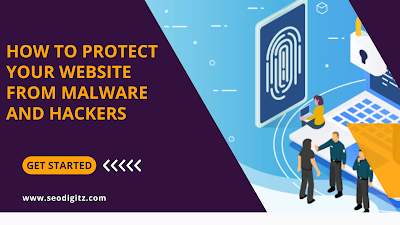How to Protect Your Website from Malware and Hackers
1. Keep Your Software Updated
One of the most common ways hackers exploit websites is by targeting vulnerabilities in outdated software, plugins, and themes. Ensure that your content management system (CMS) and all associated components are regularly updated. These updates often contain patches for known security issues, so staying up to date is crucial.
2. Use Strong Passwords
Your website’s login credentials are the first line of defense against unauthorized access. Create complex passwords that include a combination of uppercase letters, lowercase letters, numbers, and special characters. It’s also a good practice to change your passwords regularly and use a password manager to keep them secure.
3. Implement Two-Factor Authentication (2FA)
Two-factor authentication adds an extra layer of security by requiring users to provide a second form of verification, such as a one-time code sent to their mobile device. Enabling 2FA makes it significantly harder for hackers to gain access to your website, even if they manage to obtain your password.
4. Regularly Backup Your Website
Regular backups are your safety net in case your website is compromised. Ensure that you have automated and manual backup procedures in place, including both your website files and its database. Store backups in secure locations, and test your restoration process to make sure it works.
5. Install a Web Application Firewall (WAF)
A Web Application Firewall acts as a shield between your website and potential threats. It filters out malicious traffic and can block various hacking attempts, such as SQL injection and cross-site scripting. Many hosting providers offer WAF services or you can install a third-party WAF.
6. Secure File Uploads
If your website allows file uploads, such as images or documents, ensure that these files are thoroughly checked for malware before they are executed on your server. Use security mechanisms to limit the types of files that can be uploaded and validate the content to prevent any potential vulnerabilities.
7. Monitor for Suspicious Activity
Implement a security monitoring system to keep an eye on your website for unusual or unauthorized activity. Set up alerts for suspicious login attempts or changes to critical files. Early detection can help you respond swiftly to potential threats.
8. Educate Your Team
If you have a team managing your website, ensure that they are educated on security best practices. Everyone should be aware of the importance of cybersecurity and understand their role in maintaining the website’s security.
9. Regularly Scan for Malware
Use security scanning tools and services to routinely scan your website for malware and vulnerabilities. These tools can identify and remove any malicious code or vulnerabilities that may have been introduced.
10. Secure Your Hosting Environment
Choose a reliable hosting provider with a strong security infrastructure. Consider using a Virtual Private Server (VPS) or dedicated hosting for added security and isolation from other websites. Keep the server’s operating system and software up to date as well.
For More View:
Web Design Companies Bangalore | Website Designing Companies Bangalore
Website Design companies Bangalore | Web Designing Companies Bangalore
Top Web Design Company Bangalore | Best Web Design Company Bangalore



Comments
Post a Comment